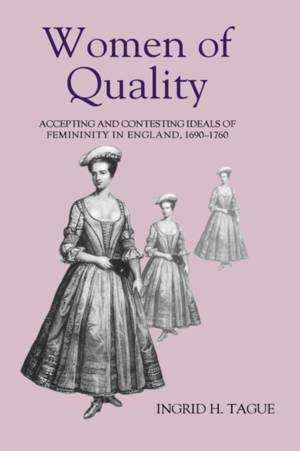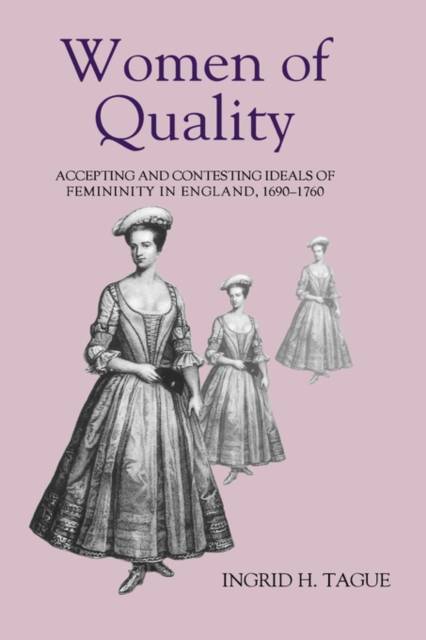
Bedankt voor het vertrouwen het afgelopen jaar! Om jou te bedanken bieden we GRATIS verzending (in België) aan op alles gedurende de hele maand januari.
- Afhalen na 1 uur in een winkel met voorraad
- In januari gratis thuislevering in België
- Ruim aanbod met 7 miljoen producten
Bedankt voor het vertrouwen het afgelopen jaar! Om jou te bedanken bieden we GRATIS verzending (in België) aan op alles gedurende de hele maand januari.
- Afhalen na 1 uur in een winkel met voorraad
- In januari gratis thuislevering in België
- Ruim aanbod met 7 miljoen producten
Zoeken
€ 177,45
+ 354 punten
Omschrijving
Focusing on the complex relationship between discourse and experience, 'Women of Quality' examines the role of gender in aristocratic women's daily lives during a period of significant cultural change. In the years following the Glorious Revolution, didactic writers and other social critics responded to a perceived crisis of gender relations by creating a new discourse of 'natural' feminine behavior in opposition to the luxury and decadence of fashionable women. Modern scholars have often portrayed this agenda as representing the rise of a middle-class ideology, but Ingrid Tague argues that the new rhetoric held enormous appeal for those women who would appear to be its greatest targets: wealthy, fashionable 'women of quality'. Using the correspondence and diaries of these women, Tague traces the ways in which they adopted, adapted, and exploited ideals of femininity. In their hands, feminine values could become powerful tools that enabled them to compete for status and reputation. Ironically, by identifying femininity with private, trivial concerns, these ideals created unique opportunities for elite women. Female participation in informal social and political activities placed women at the heart of aristocratic power in the early eighteenth century, even as they employed the language of wifely subordination and domesticity. Ingrid Tague is Assistant Professor of History at the University of Denver.
Specificaties
Betrokkenen
- Auteur(s):
- Uitgeverij:
Inhoud
- Aantal bladzijden:
- 264
- Taal:
- Engels
- Reeks:
- Reeksnummer:
- nr. 1
Eigenschappen
- Productcode (EAN):
- 9780851159072
- Verschijningsdatum:
- 31/10/2002
- Uitvoering:
- Hardcover
- Formaat:
- Genaaid
- Afmetingen:
- 174 mm x 231 mm
- Gewicht:
- 730 g

Alleen bij Standaard Boekhandel
+ 354 punten op je klantenkaart van Standaard Boekhandel
Beoordelingen
We publiceren alleen reviews die voldoen aan de voorwaarden voor reviews. Bekijk onze voorwaarden voor reviews.









